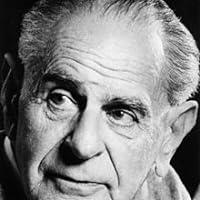
Karl Popper
Om författaren
Karl Popper was an influential philosopher of science and a prominent figure in the 20th-century intellectual landscape. He is best known for his rejection of the classical inductivist views on the scientific method in favor of falsifiability as a criterion for demarcating science from non-science. His works emphasized that scientific theories should be framed in such a way that they can be tested and potentially disproven, thus laying the groundwork for modern scientific inquiry. Popper's ideas have significantly shaped the philosophy of science, particularly in the realms of natural and social sciences.
In addition to his contributions to philosophy, Popper was also involved in political philosophy, advocating for liberal democracy and criticizing totalitarianism. His writings reflect a deep commitment to the values of open societies, where debate and criticism are essential for progress. Through his extensive publications, including "The Logic of Scientific Discovery" and "The Open Society and Its Enemies," Popper has left an indelible mark on both philosophy and political thought, influencing generations of scholars and thinkers around the world.